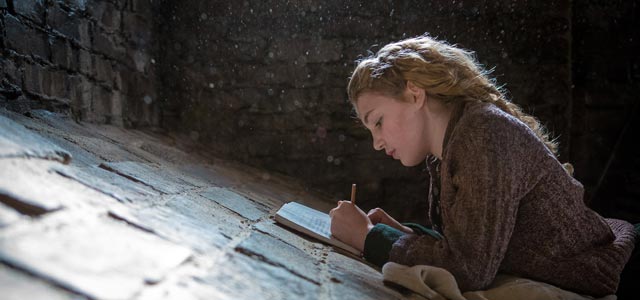
Released on 26th February, World War II drama The Book Thief is adapted from Markus Zusak's highly acclaimed novel.
Beginning in 1939, the film tells the story of a young girl named Liesel (Sophie Nelisse) who is sent to live with her new adoptive family Hans (Geoffrey Rush) and Rosa (Emily Watson). With war imminent, Liesel not only teaches herself to read but also bonds with a Jewish boy named Max (Ben Schnetzer) whom Hans and Rosa are hiding in their basement.
Cineworld recently had the privilege of speaking with Emily Watson about her role as Rosa, and how the film communicates a powerful message about the importance of literature.
Click here to order your tickets for The Book Thief.

At the outset, Rosa is somewhat stern yet she warms over the course of the film. How was that to play?
It was really interesting work her out. First of all, I was interested in the idea of playing someone horrible and unattractive and unpleasant and foul-mouthed because that’s really good fun as an actor. But when you start to work somebody out, you realise they have a reason to be unpleasant and in a way Rosa, like many, many German people, is very disappointed and very bitter.
She’s washing other people’s dirty clothes by hand to put bread on the table. They’re fighting poverty and nothing in her life is as she imagined it would be. She married this wonderful, romantic, poetic figure, a musician and a painter who sits around doing nothing. So she’s angry, closed-off and stressed all the time, perfect for National Socialism to latch onto. They say "come with us, we’ll make it all better". And when a Jewish boy falls through their door, we find out what sort of a decent person she used to be.
Did your family have a connection to World War II?
Yes, my grandfather fought in both wars. People lost on both sides of the family. I had a strong sense of it growing up. It’s interesting to tell the story from the point-of-view of an ordinary German family, which isn’t something you see very often. There’s a Jewish institute that celebrates the 24,000 individuals who are known to have aided Jews during that period, people who put themselves in great danger. For Rosa, it’s her awakening, the moment she comes alive.

What was it like shooting in Berlin?
We shot in Babelsburg Studios which is, to my knowledge, the oldest film studio in the world. It’s been under Nazi and Stasi control, they’ve had a lot of interference. It’s got a really interesting history so it was great to be there doing that. And Berlin was fascinating too, the dichotomy of it, because it’s one of the most civilised cities on Earth with incredible culture, yet it was at the centre of the worst atrocity to befall mankind.
What went wrong? And what went wrong was the whole nation lost its moral compass, people weren’t as brave as the Hubermanns depicted in the book and film. It’s a very honest city, it’s bearing witness to what happened in a very accurate way. We were also surrounded by German cast and crew, each of whom had stories – everybody’s grandparents at least had related to that event.
What was the reaction of people around you as you were shooting?
Well the book burning sequence was filmed in a small town near the Polish border and driving that way, you’re aware of all the things that happened there. When we filmed the children’s choir singing two particular verses of the German National Anthem, we realised it’s prohibited material and if you try to look that up on the internet, you can’t find it. We had to get permission to use it in the film.
It’s actually one of my favourite sequences because you see Liesel, for the first time, enjoying the experience of being with other children and being a part of something, singing in a choir. She’s doing something about which a lot of Germans were passionate at the time. Later on during the book burning scene, you see Liesel listening to the burgomeister and in this amazing close-up, you see the penny drop as she realises what’s going on.
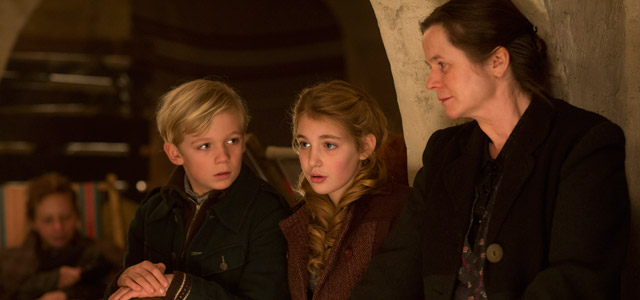
At the centre of the film is a battle for language. As an actress who uses language to convey the emotion of a given character, how did you respond to that?
I remember at a read-through in Babelsburg just thinking that this is a love-letter to the power of storytelling. I felt like I really connected with it because it was saying that you have to keep telling stories, you have to keep reading literature because it’s what makes us human, what makes us civilised. And if you don’t have that, then the consequences are catastrophic.
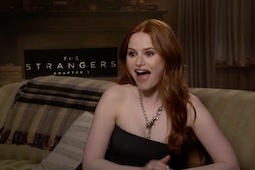
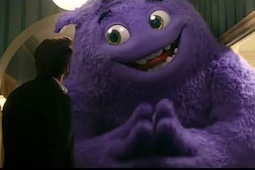
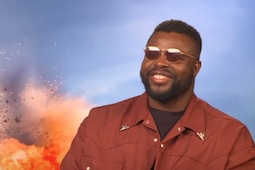
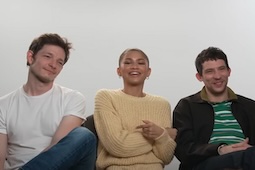
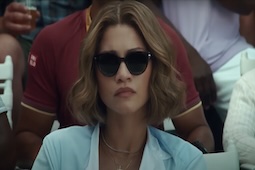
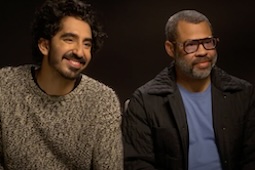
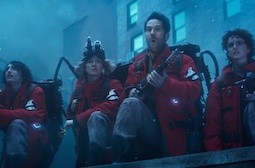
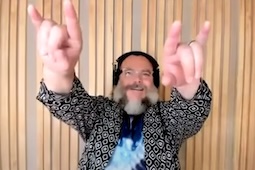
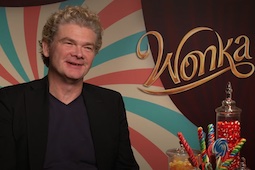
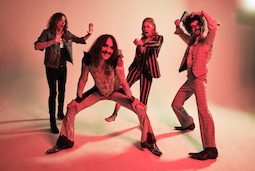
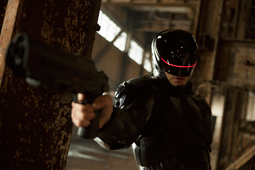

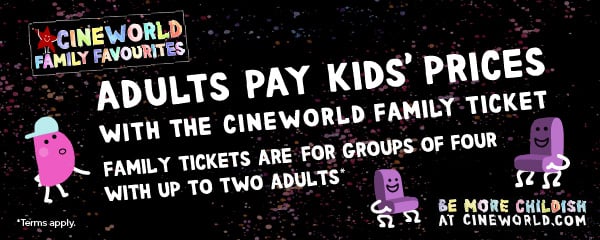

.jpg)
.png)



